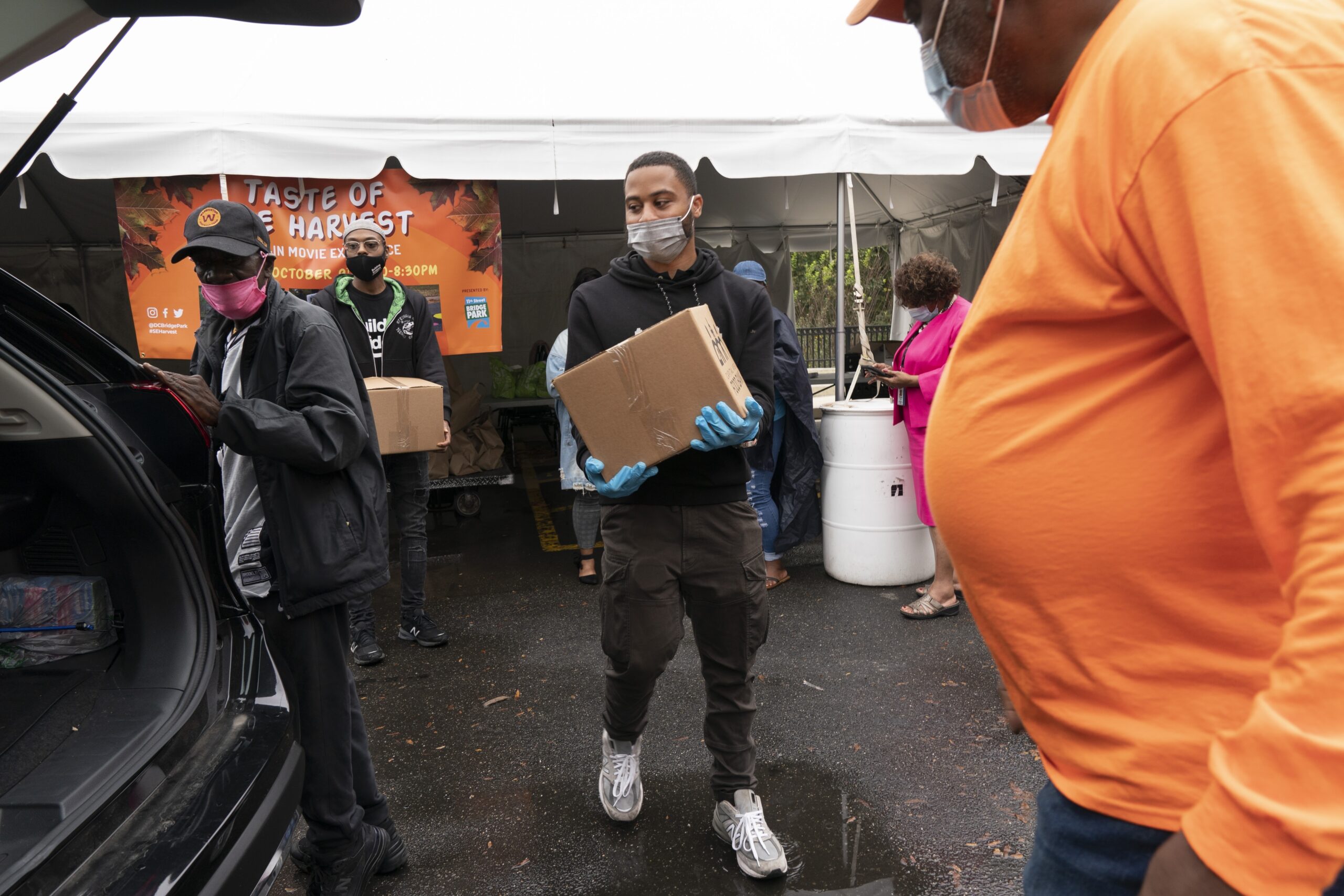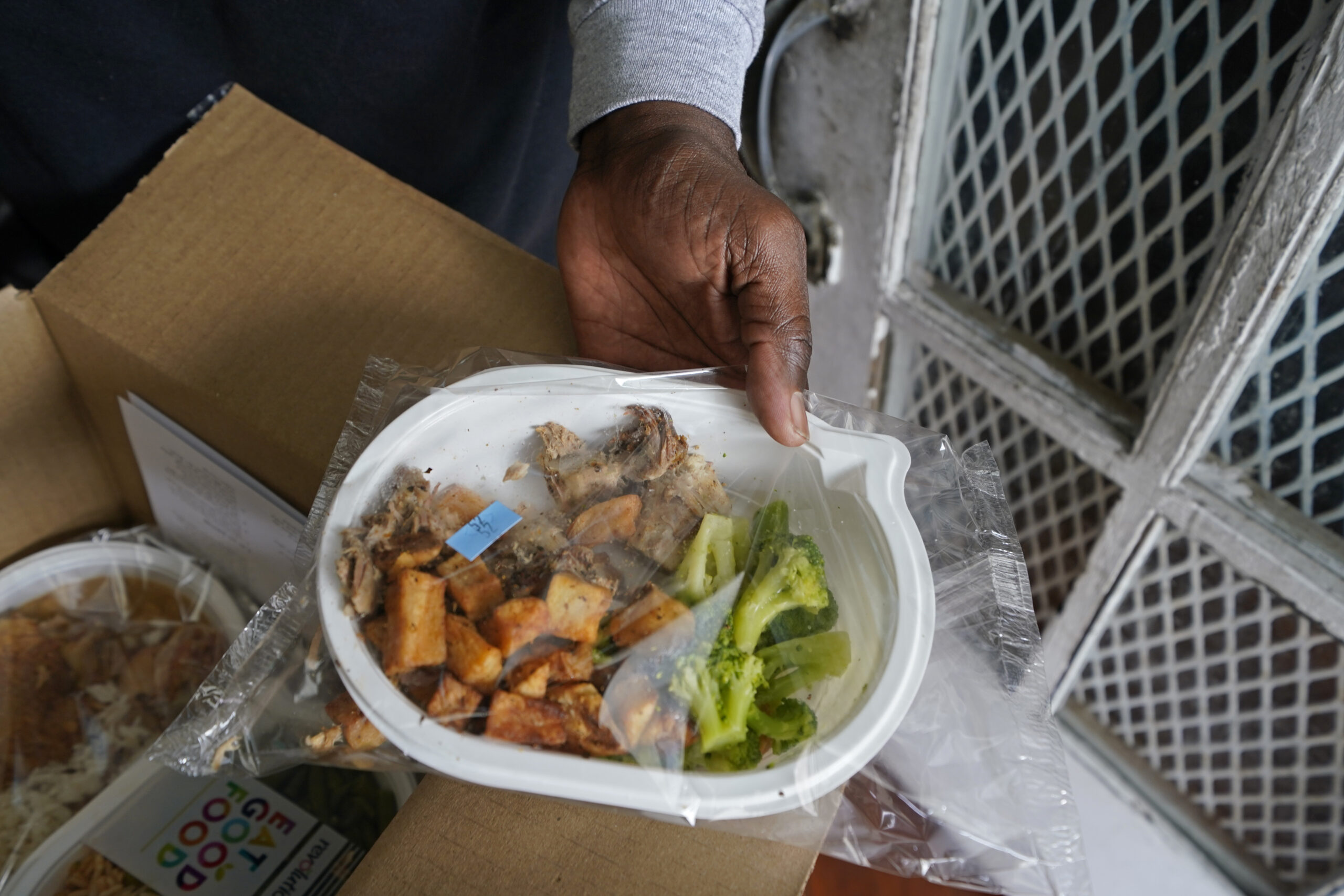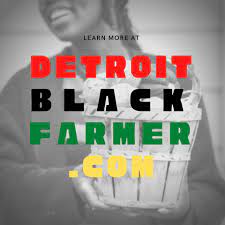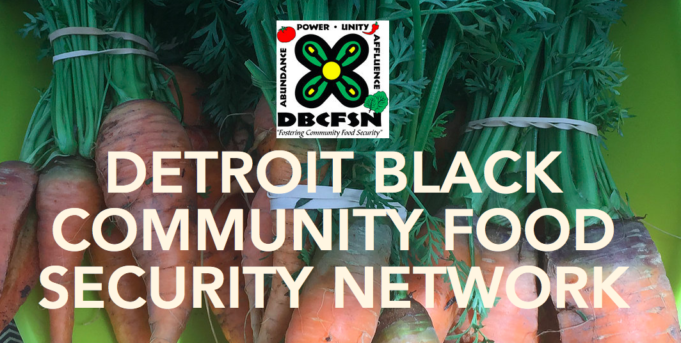Black food activists are redefining and reshaping how people should think about the lack of access to food in their community. In particular, the term “food apartheid” has taken root in place of the normalized term “food desert.”
“With the term ‘food desert,’ that’s not a term that was generated from inside of our community to describe the situation that we’re faced with. It was a term that was imposed on our community from the outside. That’s the first problem with the term,” said Malik Yakini to The Final Call. “The second problem with the term is that most people think of a desert as being a relatively naturally-occurring ecosystem.

And so the use of the term ‘food apartheid’ points to the intentionality of the disparities that exist within the American food system. It’s not just something that happened, like an ecosystem happens over thousands of years. It didn’t just happen. It was intentionally designed from the very beginning to give people who are defined as White greater access than people who are defined as Black.”
Mr. Yakini is the executive director of the Detroit Black Community Food Security Network. Through the network, organizers operate D-Town Farm, a seven-acre farm that includes a rainwater retention system, a solar energy system, composting, hoop houses, beekeeping and a children’s area. They’re also building a 34,000 sq. ft. “Detroit Food Commons” that will include a cooperatively-owned grocery store and shared-use kitchens.
Dr. Shakara Tyler, the board president of the network and the cofounder of the Detroit Black Farmer Land Fund, told The Final Call that food apartheid illuminates the reality of the capitalist, colonialist, industrial food system that dictates production, distribution and consumption.

“It’s not like the lack of food access or food insecurity just fell out of the sky,” she said. “This is strategically created by capitalist institutions that consistently prioritize profits over people and [degrade] the land to produce extremely unhealthy foods and then flood Black urban communities and Black rural communities as well with these unhealthy foods as a way to make a dollar.”
Mr. Yakini linked the root of America’s food system to White supremacy, starting with the country’s foundation. The country was founded on land stolen from the Indigenous or Native American population. That land was then worked upon by enslaved Africans. Coming out of slavery, Black people started to take control of their independence by owning land and establishing towns, but many were soon run off the land, particularly in the South. The mistreatment of Black people in the South caused migrations North where now Black people are living in cities that are food insecure, explained Mr. Yakini.
“Because most food is grown on land, if you take the land and you push people off of it, then there’s no such thing as any kind of fair food system, because the Indigenous people were dependent upon their relationship with the land for their food security,” Mr. Yakini said.
He pointed out that Indigenous people were engaged in farming, hunting and gathering before they no longer had access to the land, which was their source of food. When enslaved Africans were brought to the country, they were wholly left out of the food system, many surviving from the leftovers on the slavemaster’s table.
Today, food apartheid manifests in the proliferation of fast food restaurants and in the economic extraction by other ethnic groups who open shop in the Black community, said Mr. Yakini.
Only two percent of America’s farms are Black-owned. With the production of food being concentrated in the hands of rich White people, high-quality foods and more nutrient-dense foods are flooded into White wealthy suburban communities, while low-quality and less nutrient-dense foods are flooded into urban communities inhabited by people of color, Dr. Tyler stated.
As a result, Black people are plagued with both physical and mental health issues at disproportionate rates. According to the CDC, 20.2 percent of Black adults are in fair or poor health compared to 14.1 percent of White adults. Blacks have higher rates of obesity, high blood pressure and diabetes than Whites and are twice as likely to die from heart disease. Dr. Tyler said Black people’s poor eating habits also affect cultural and spiritual health.

“Food carries energy. And so if we’re not feeding our bodies with what we need, with positive energy, then that negatively affects us as well,” she said.
Many of Black people’s ailments include comorbidities and may result in more severe cases of Covid-19. On top of the existing inequalities related to food access, Mr. Yakini explained that the pandemic “exposed to people how fragile the American food system is.”
“We saw the fragility of the American food system, and then we saw that when problems happen that Black people get the short end of the stick,” he said.
As an urban farmer, the pandemic impacted his ability to produce and sell food. He and the staff at D-Town Farm had to adapt how they were farming in order to keep people safe.
Dr. Tyler said the pandemic also impacted Black food access through federal funding. Agriculture Secretary Tom Vilsack admitted to the Washington Post that under the Trump administration, 99 percent of Covid-19 relief money for farmers went to White farmers.
“The Black farmers that are usually growing specialty crops or fruits and vegetables didn’t receive hardly any of that funding. So this is a governmental tool that was supposed to assist food producers across the board, across the scale and it only went to large White, wealthy commodity farmers,” Dr. Tyler said.
Mr. Yakini said the food system doesn’t operate in isolation, but it works with the other systems in society, transportation being one. Forty percent of Black people in Detroit do not own a vehicle.
“If the nearest grocery store is two miles away, what do you do? A lot of people, because of that difficulty, end up going to the smallest stores in the neighborhood, which sell even lower quality food, very few fresh items and lots of things that are high in preservatives and high in salt and high in artificial flavorings that have a negative health impact on us,” Mr. Yakini explained.
He said another factor that impacts food access is income. “We can’t just attack food by itself. We also have to attack poverty so that people have a fair wage so that they can pay the actual price of high-quality food and not have to try to live off ramen noodles or whatever, which plenty of folks in the Black community do,” he said.
To address and solve food inequalities in America, food activists have started advocating for food sovereignty.

“Food sovereignty means not only do we have enough food to eat, but that we’re shaping and defining the systems that provide that food. We’re deciding what we grow, how we grow it, where we grow it,” said Mr. Yakini.
To reflect the change in consciousness from “food security” to “food sovereignty,” staff with the Detroit Black Community Food Security Network is planning to change the organization’s name to the Detroit Black Community Food Sovereignty Network. Mr. Yakini said he sees the Nation of Islam as a template for food sovereignty.
“Between the farms in Georgia, Alabama and Michigan, and between the trucking companies to transport food from the farms and the supermarkets in Chicago, Detroit and other cities, the owning of a slaughterhouse, the importing of fish from Peru, all of these things are exactly what we need to be doing. We don’t have to reinvent the wheel,” he said, naming some of the past and current operations of the Nation.
He also explained the importance of urban farming in food sovereignty efforts. He said food that is consumed closer to when it was harvested is more nutrient-dense.
“As soon as you pick food off the vine, it begins to slowly die. And so if you pick something and you eat it immediately, you’re getting the full impact of all of those vitamins and nutrients that are in that fruit or vegetable,” he said. “On the other hand, if you pick it and then you put it into a crate and then you put it into a refrigerator and then you put it on a truck and it travels across the country for two weeks and it sits in a warehouse and then … about five days later you go to the store and you get it, it has much much less nutrient density than if you got something that was harvested just a short while ago.”
Mr. Yakini said one of the first steps Black people can do to get involved in controlling their food is to have an ongoing campaign to develop a common identity, an awareness of Black history and culture and self-love, in order to support their own systems.
Both he and Dr. Tyler advised Black people to grow something. “Just find a way to grow, whether it’s on your windowsill, whether it’s on your front lawn, your backyard, a vacant lot next to your house,” Dr. Tyler said.
She said the more Black people grow, the less dependent they are on a food system that exploits them. “So we take back little pieces of our power bit by bit by growing our own food little by little,” she said.
She said Blacks should also support Black food economies on the local, state, regional and national levels, especially Black farmers, many of whom are already financially disadvantaged.
But she said for people who are struggling just to survive, it’s not always feasible to get involved in Black food sovereignty work at the grassroots level. In those cases, it’s important to provide mutual aid to people and also educate and communicate through dance, poetry, storytelling and sharing a meal, she said.
Mr. Yakini said Black people need to eat to live, a principle taught by the Honorable Elijah Muhammad, patriarch of the Nation of Islam.
“We need to be aware of what we’re putting into our bodies, because part of being able to marshal the resources that we need to build systems that serve our communities is that we have to stop spending so much money on things that we really don’t need and don’t do us any good in the first place,” Mr. Yakini said.
He encouraged people to own land.
“It’s absolutely amazing what we can do, but I would advise that we really begin to develop a value for land and that we obtain ownership of it whenever we can,” he said.













